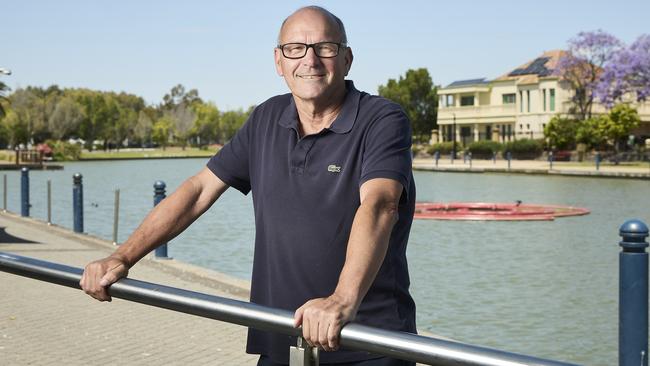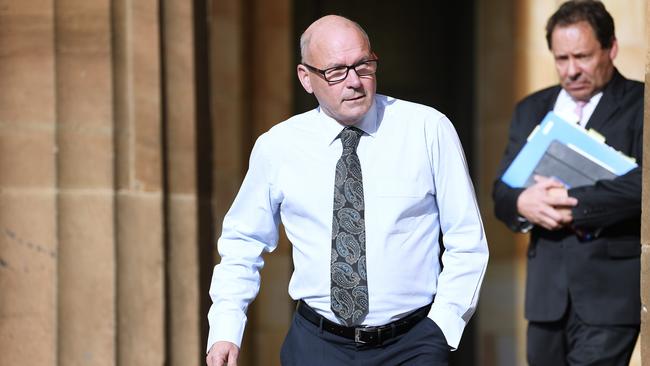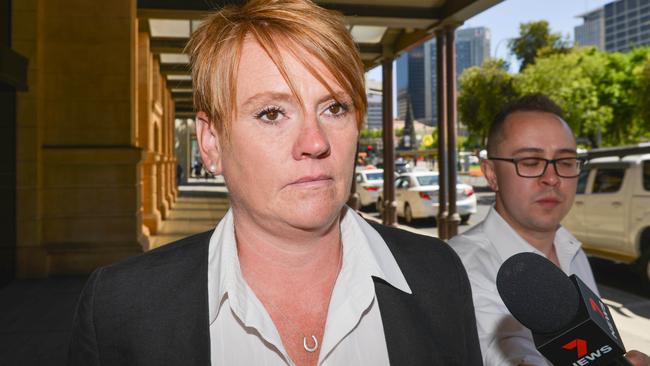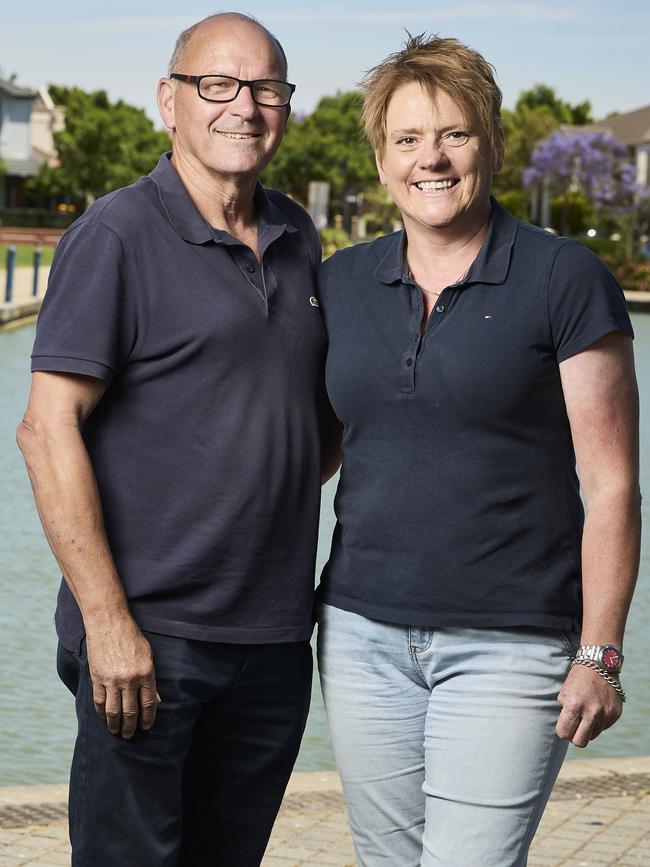‘I was self-entitled, arrogant’: Disgraced ex-SA magistrate Bob Harrap speaks out for first time since he was jailed for corruption
Two years after being released from jail for corruption, disgraced ex-magistrate Bob Harrap is earning $45/hour working as a disability advocate – and says prison changed him.
Police & Courts
Don't miss out on the headlines from Police & Courts. Followed categories will be added to My News.
Bob Harrap has come full circle.
After more than a decade as a high-flying magistrate, then a spectacular fall from grace and a jail sentence for corruption offences, he has found a renewed sense of purpose working as a disability advocate.
Once on a $300,000 annual salary, Mr Harrap now earns $45/hour – less than $90,000 a year.
Speaking out for the first time since his release from custody, he admits he made mistakes but insists he has left his former self behind.
“I reached a very unpleasant stage,” he told The Advertiser.
“I was self-entitled, arrogant and I’ve had to own that and I’ve reflected on that and I’m very pleased to leave that behaviour and that part of me further and further behind.
“I can’t change that and I can’t change the hurt and the damage I did to others as a result of that behaviour. I can do no more than move forward.”
In 2020, following an investigation by the Independent Commissioner Against Corruption (ICAC), Mr Harrap was charged with deception offences for dodging demerit points by lying about who had been driving his government-issued car.

Three others were also charged including his partner Abi Foulkes, then a police prosecutor, who agreed to take his points.
The pair paid a high price. Both were forced out of their jobs, Mr Harrap spent 12 months behind bars and Ms Foulkes was placed on a good behaviour bond.
Three years on, they are now working together in the NDIS appeals team at the not-for-profit Disability Rights Advocacy Service (DRAS) – Mr Harrap as team leader and Ms Foulkes in client services.
Mr Harrap underwent a great deal of reflection while serving his sentence at Port Lincoln Prison and, on release, began the search for his next move.
“I was very keen to make a new start and do some worthwhile work,” he said.
“That was a difficult time – to either not get a response or get a response saying thanks but no thanks. There were a few of them.”
He wrote to DRAS, where he was in June 2022 offered a job assisting clients who have lodged appeals at the Administrative Appeals Tribunal.

“It can be a long, complicated, frustrating process and so just assisting vulnerable people through that process is pretty rewarding,” he said.
“I’ve really embraced the role.”
DRAS chief executive David McGinlay said he knew of Mr Harrap from previous work in the legal field, and had found him back then to be “the most arrogant person I’ve ever met”.
“When I met with him the very first time about taking him on board my mindset was ‘if you have any of this arrogance left in you, I am not taking you on board’,” he said.
“And there’s none of it (left).
“This guy went through hell and it was his own problem, his own fault for doing it. But everybody deserves a second chance. That’s what rehabilitation is all about.”
Mr McGinlay said, under usual circumstances, government-funded DRAS would not be able to fund an advocate with Mr Harrap’s level of experience and expertise.
“He’s gone from a $300,000 salary to $45 an hour working with people with disability,” he said.

“He came to the job and he does it really well and I will fully support the decision I made to employ him and I would do it again tomorrow.”
The service is funded to assist 150 clients each year but in 2022 helped a total 225, which Mr McGinlay attributes in part to Mr Harrap’s willingness to take on a demanding workload.
Mr McGinlay was in 2021 involved in a conflict-of-interest investigation into the Northern Territory ICAC office, which was eventually dismissed with no finding of wrongdoing.
Mr Harrap’s role does not require him to hold a legal practising certificate, and he has undergone all other necessary checks including a Working With Children.
He said he will “forever and a day” be grateful Mr McGinlay and DRAS afforded him the opportunity.
“They were prepared to take a chance and hopefully I’ve repaid that a little bit,” he said.
These days, Mr Harrap, 64, and Ms Foulkes, 51, enjoy spending time at their property on the outskirts of Adelaide, where they keep dogs and horses.

They are not keen to dwell on the year they spent separated from each other, which Mr Harrap said involved “difficult, difficult” times that were likely even harder for Ms Foulkes.
He said he found prison life to be “a very different experience”.
“I don’t think the public, and I certainly don’t think my former colleagues necessarily fully appreciate just how appallingly prisoners are treated,” he said.
“It was a real insight into that aspect of it.”
He said older prisoners and those with mental health issues were particularly vulnerable.
Ms Foulkes worked as a cleaner and in a bar before she was approached by Mr McGinlay about the DRAS role.
She now works part-time, also juggling an equine massage business, and said she too finds the job rewarding.
“When these people get on to our waitlist and I give them a call, you can just hear the emotion in their voice. It’s palpable,” she said.
Ms Foulkes, who described herself as a “glass-half-full person”, said in the years since her conviction she has kept moving forward.
“It’s been hard. At the beginning, I would go to Foodland and I’d be convinced people recognised me,” she said.
“That is horrible and it messes with you, and you can’t change people's perceptions, you just can’t.”
But she said the pair have received overwhelming family support, and are determined to make the best of their situation.
“We’re never going to let it go, it will always be part of who we are,” she said.
“It’s what we do with that that makes a difference now.”





